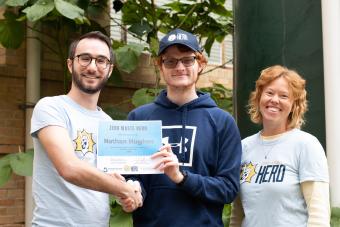One of the five Core Values of Facilities Services is Stewardship. As stewards of the University's facility-related services, we strive to conduct our business in an environmentally, socially, and economically responsible manner.
Facilities Services actively reduces consumption, recycles, protects the environment, and restores resources in our day-to-day operations. We also support other campus community sustainability efforts.
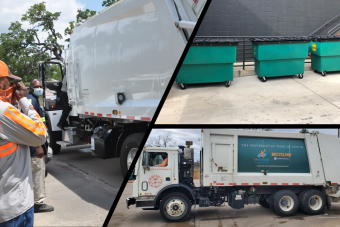
Solid Waste & Recycling
Our Solid Waste & Recycling team removes approximately 3,500 tons of landfill trash, recyclables, and compostable materials each year from UT's Main Campus. The Solid Waste & Recycling team also supports major events occurring on campus.

Rethink & Reuse: Preventing Waste
Rethinking and reusing make a bigger impact on the campus waste stream than just managing our discards at disposal. The University community values rethinking and reusing because it reduces our carbon impact and is fiscally responsible.
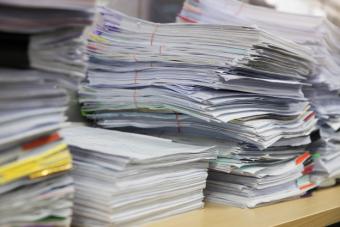
Recycle: Reducing Our Landfill Waste
Recycling is part of reducing landfill trash from the UT campus. The University community values recycling because it reduces our carbon impact and is an important way for us to contribute to a greener economy. Reducing our waste going to landfills is the simplest way to reduce this carbon impact.
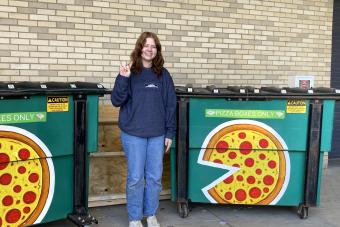
Compost: Reducing Our Landfill Waste
Composting is part of reducing the overall waste stream from the UT campus. In fact, Resource Recovery waste audits consistently find that 40-45% of material leaving campus is compostable. This means that composting is a necessary strategy to help us reach zero waste.
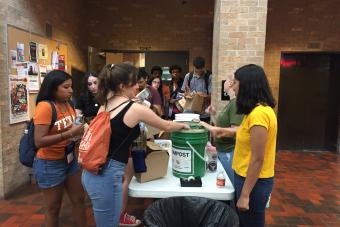
Zero Waste Events
Events are a great way to create lasting "Guest Impressions" when attendees interact with zero waste on campus and deepen their understanding of proper waste disposal as well as contribute to UT's zero waste goal.

